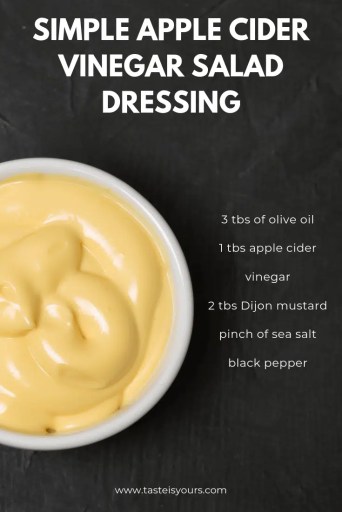Did you know that olive oil is one of the world’s most commonly used oils? It’s also loaded with healthy fats and antioxidants. Because it’s so versatile and has such a neutral flavor, olive oil can be used in almost any dish.
But there are so many different types of olive oil out there. How do you know which one to pick? And what does “first cold-pressed” even mean? If you’re new to using olive oil as an ingredient in your cooking, this blog post will help you get started. Keep reading for everything you ever wanted to know about olive oil!
What is olive oil?
Olive oil is a liquid obtained from olives and it is produced by pressing whole olives.
It is commonly used in cooking, whether for frying or as a salad dressing. Also, it is used in cosmetics, pharmaceuticals, and soaps, as a fuel for traditional oil lamps, and has additional uses in some religions. There is limited evidence of its possible health benefits. The olive is one of three core food plants in Mediterranean cuisine; the other two are wheat and grapes. Olive trees have been grown around the Mediterranean since the 8th millennium BC.
How is olive oil produced?
It is produced by grinding olives and extracting the oil through mechanical or chemical processes. Green olives usually produce more bitter oil, and overripe olives can produce oil that is rancid, so for good extra virgin olive oil care is taken to make sure the olives are perfectly ripened.
Varieties of olive oil
Extra virgin
Extra virgin type is the top-grade olive oil, delivering the best taste and the full health benefits of the oil. The olives are crushed at a mill and the oil is extracted via mechanical means – versus refined type extracted through the use of heat or chemicals.
First cold press
This outdated term is actually used mainly for marketing purposes. It’s not a required standard. It really just means the oil underwent one phase of “separation” from the olives at the mill – versus repeated separations – and no heat was involved in extracting the oil from the olives.
Pure
The oil that’s been refined to remove any defects, and with it, is stripped of the health benefits that extra virgin type is known for. It’s typically blended with just enough extra virgin olive oil to add
Light
Though it’s made to sound as if it is, “light” olive oil is not a diet product. It’s basically the same as “pure” olive oil. It’s really light in flavor or color – not calories or fat. In short, the term “light” has absolutely nothing to do with the quality or health benefits of the oil.
Pomace
Oil extracted from the olive pomace – the solid waste left over from the milling process. It includes olive pits, skin, and flesh. The oil is made by re-milling the pomace to extract the remaining 1–5% of the oil that’s left in the waste. It also can be obtained by mixing solvents into the pomace; heat is then used to extract additional oil from the pomace.
Environmental impact of olive oil production.
Cold-pressed or cold extraction means “that the oil was not heated over a certain temperature (usually 27 °C (80 °F)) during processing, thus retaining more nutrients and undergoing less degradation.
Olive oil nutrition facts.
Olive oil is a healthy fat that can be used for cooking and baking. It is also a good source of antioxidants and vitamins like E, K, and D.
- Calories: 120
- Protein: 0 grams
- Fat: 14 g
- Saturated fat: 2 g
- Monounsaturated fatty acids: 10 g
- Polyunsaturated fat): 1.5 g
- Carbohydrates: 0 g
- Fiber: 0 g
Nutrition Facts
Serving Size14 g
- Amount Per ServingCalories120
- % Daily Value *
- Total Fat 14g 22%
- Saturated Fat 2g 10%
- Trans Fat 0g
- Cholesterol 0mg 0%
- Sodium 0mg 0%
- Potassium 0mg 0%
- Total Carbohydrate 0g 0%
- Dietary Fiber 0g 0%
- Sugars 0g
- Protein 0g 0%
* The % Daily Value tells you how much a nutrient in a serving of food contributes to a daily diet. 2,000 calories a day is used for general nutrition advice.
Who are the largest olive oil producers?
How to taste extra virgin olive oil?
The tasting of olive oil is the same as the wine tasting. The best way of tasting it is to pour 1-2 tablespoons of oil into a wine glass. Then hold the glass in one hand and cover the top of the glass with the second one. This way you will keep all the aromas inside the glass. Hold it for 1-2 minutes until the oil warms up a bit and releases its full potential.
Then gently swirl the glass, take away the hand from the top, and take a good sniff. After a few moments, you will start to notice the first smells. Among the main aromas of ripe or green olives, you may smell e.g. fresh-cut grass, cinnamon, or tropical fruits.
Now take a good sip of the olive oil.
The third of the three main attributes of olive oil, in addition to being fruity and pungent, is bitter. Bitterness, like pungency, is also an acquired taste. As anyone who has ever tasted an olive right off the tree can attest, bitter is a prominent taste in fresh olives.
What are the basic flavors of extra virgin olive oil?
Which olive oil is for what type of cooking?
The extra-virgin olive oil has a full-bodied flavor. It can be used for all forms of savory cooking, including sautéing, stir-frying, roasting, and marinating, and is the best choice for bread dipping and salad dressing.
Pure olive oil or olive oil it’s typically milder than extra-virgin and more yellow in color. While not quite as high-quality as extra-virgin, it’s great for savory cooking and adds flavor and depth to a dish.
The “light” olive oil is the mildest of all the oils. It’s best for baking and savory cooking at very high temperatures like frying for example.
How to choose the best olive oil?
Always choose a dark bottle – olive oil is very sensitive to light and heat and the dark glass prevents oxidation of the oil and protects the nutrition levels.
Select virgin or extra virgin olive oils – the EXTRA virgin oil is from the first press and has the highest grade. Also, it contains the most nutrients. As a second option choose regular virgin oil which is the next grade down.
Origin – you should always pick an olive oil that is produced in a single country.
Cold pressed– this means that the olive oil was produced without the usage of any heat.
Pressing date– a good extra virgin olive oil should always have the “pressing date” so you know when it was produced.-
The 1-month rule– the olive oil does not age well, therefore you should only buy the amount which you will consume within 1 month.
Avoid using clear glass and plastic bottles– due to the light and heat sensitivity the oils may oxidize in the bottle, thus producing more free radicals in your body.
What are the health benefits of olive oil?
- Lowering the cholesterol level:
The latest studies show that extra virgin variety can reduce the risk of heart disease. LDL cholesterol is a bad type of cholesterol, which increases the risk of heart attacks and other heart diseases. Extra virgin olive oil, which is rich in almost 40 antioxidant chemicals, helps reduce the oxidation effects of LDL cholesterol. It also helps increase HDL cholesterol levels.
The natural variety also contains 70% monounsaturated fatty acid. As a result, it lowers cholesterol accumulation in the blood and reduces heart problems.
2. Helps with weight loss:
Mediterranean olive oil is a superb alternative to butter or other oils as it contains a lot of healthy fats. According to some medical studies, it is very hard to gain weight from mono-unsaturated fats present in olive oil.
3. Can help in managing and preventing diabetes:
4. Olive oil is anti-inflammatory:
It is rich in polyphenols that have anti-inflammatory and antimicrobial properties.
5. Good for digestion:
It is known that olive oil can help the digestive process, as it cleans the digestive tract and improves bowel movements.
6. Reduces risk of cancer:
According to medical research done by Oxford University, olive oil can protect the human body against cancerous growth, especially bowel cancer.
7. May help protect you from hypertension:
Unsaturated fats, nitrite, and nitrate may help protect you from hypertension.
8. Is packed with anti-oxidants:
It contains vitamin E, carotenoids, and phenolic compounds, all of which are very strong antioxidants.
What are the unusual uses of olive oil?
10 unusual uses of olive oil
- garden tools cleaner
- as an eye makeup remover
- skin softener
- as a lamp fuel
- it can help you to stop snoring
- shoe cleaner and shoe polish
- bath oil
- stainless steel shiner
- furniture polish
- hair tonic
Bottom line.
Olive oil is one of the most commonly used cooking oils and has many health benefits. You can use it for various cooking methods and in almost any dish. It has a high smoke point, which makes it great for high-heat cooking. And it’s delicious paired with many different foods!
FAQ
What is extra virgin olive oil good for?
Extra virgin olive oil, is rich in almost 40 antioxidant chemicals and helps reduce the oxidation effects of LDL cholesterol. Also, it is good as a skin softener, you can use it as a bath oil or even as a hair tonic.
What is the smoke point of extra virgin olive oil?
The smoke point of extra virgin olive oil is 166°C (331°F)
Is olive oil bad for weight loss?
No, Mediterranean olive oil is a superb alternative to butter or other oils as it contains a lot of healthy fats. According to some medical studies, it is very hard to gain weight from mono-unsaturated fats present in olive oil.
What are the benefits of drinking and eating olive oil?
Consuming olive oil on daily basis can prevent diabetes, it is anti-inflammatory and good for digestion, and can help to reduce weight, and lower the risk of cancer.
Is olive oil better than butter?
Mediterranean olive oil is a superb alternative to butter or other oils as it contains a lot of healthy fats.
Can I use olive oil for cooking?
Yes, olive is excellent for browning meats and sautéing: most chefs recommend using olive oil for high-heat cooking methods because it has a high smoke point. This means that it won’t break down and become unhealthy when heated.
Does olive oil go bad?
The high acid content of most extra virgin olive oil keeps it fresh from 18 to 24 months.
Can you use olive oil instead of vegetable oil?
You can use olive oil as a replacement for vegetable oil in majority of the dishes. Please remember that it has low smoking point and is not suitable for frying on high temperatures.
If you enjoyed this article you can check out the “all you need to know about quinoa” one too 🙂












1 comment
[…] a reminder that too much saturated fat in your diet is unhealthy. Eating unsaturated fats like olive oil is proven to be much […]